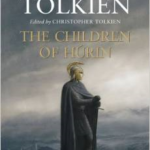Is Entertainment A Waste Of Time? Part 1
How many times did I see my mom shake her head as she clucked her tongue at whatever TV program we kids were watching. The thing was, my dad often was watching too, which put Mom on an island by herself, clucking and shaking.
Whenever she voiced her disapproval, often about the level of violence, our argument was something like, But Mooomm, it’s just pretend. Those guys aren’t really dying. Of course, in love scenes, the couple really was kissing, so the argument was more along the line of, But they’re only kissing!
The point is, I didn’t think about what I was watching much, unless Mom was in the room, and then I was decidedly uncomfortable in the scenes I knew would bother her.
As a young adult, after seeing some raunchy movies, I came to a place where I realized I needed to set my own parameters for my entertainment. Teaching in a Christian school caused me to examine my standards yet again. What kind of an example was I to be to my students?
Eventually I asked what seemed like a logical question: is entertainment even necessary? Are we wasting our time listening to idol contestants, watching the Final Four, reading the comics page of the newspaper, or tuning in to see the latest episode of V?
That’s a tough question. Some entertainment seems to fall into the category of “art,” so it would be hard to argue against it. I remember seeing Macbeth when I was young, and an operetta version of Hansel and Gretel. But if those stories fall in the realm of acceptable entertainment, what about the Donald Duck comic books I loved so much? Or the Nancy Drew novels I started reading?
Is the issue entertainment in general or meaningful entertainment? In other words, should entertainment have something about it that justifies the time it requires? Or is it enough that we can lose ourselves for a few hours? Is it enough that we are amused or thrilled or happy?
I think about Jesus, working so hard to meet the needs of the crowds that flocked to Him that there were days He didn’t even have time to eat. I have a hard time imagining Him sitting down to watch Survivor or going to a Dodgers game. But maybe that’s because those weren’t the forms of entertainment in the first century.
J. R. R. Tolkien famously defended “escapist” literature, particularly “fairy stories,” saying that it allowed escape from the “horror” of the technological, to that which is more permanent and beautiful:
I have claimed that Escape is one of the main functions of fairy-stories, and since I do not disapprove of them, it is plain that I do not accept the tone of scorn or pity with which ‘Escape’ is now so often used. Why should a man be scorned if, finding himself in prison, he tries to get out and go home? Or if he cannot do so, he thinks and talks about other topics than jailers and prison-walls?
– from “On Fairy Stories”
The implication is that the escape to something more true, validated the escape. But what about escape that isn’t to something true? What about escape that is mindless, designed only to give a momentary jolt — a thrill or a sense of happiness? Is that escape still profitable?
I suspect many in our western culture, including many Christians, will eagerly answer that of course it is. But I can’t help wondering if that isn’t the world talking, not God. I’d like to look at what the Bible says about entertainment next time.
What are your thoughts and insights on the subject?











































First, let us remember that Jesus himself was criticized for entertainment: “For John came neither eating nor drinking, and they say, ‘He has a demon.’ The Son of Man came eating and drinking, and they say, ‘Here is a glutton and a drunkard, a friend of tax collectors and sinners.’ But wisdom is proved right by her deeds.” (Matthew 11:18-19, also found in Luke 7:33-35). I’ve always loved these verses, because it shows how little we are able to satisfy expectations from those out to condemn: whether you’re a monk or a plumber, it’s God’s love and how you show it that matters.
It’s true that Jesus spent long hours ministering to the crowds and healing the sick. Yet there were times he turned the multitudes away and traveled in secret. Sometimes he preached before thousands, sometimes he just spent time with his disciples. Sometimes, he even stopped to enjoy a party. Then there’s the time before his public ministry, when Jesus lived and worked in Nazareth. Did he tell jokes? Did he play games? I’m not going to speculate too far here, since we don’t have any Scripture to understand this time period. But I don’t think teaching at the temple was the only thing Jesus did at the age of twelve. As Christians we often say that because Jesus lived on earth He understands our pain. But can’t Jesus also enjoy our joy, simplistic and ridiculous as the source may be?
Finally, I agree that we should all examine honestly where we spend the majority of our time and energy; after all, as Jesus taught in Matthew 6:21, “For where your treasure is, there your heart will be also.” I also believe that there are standards we should hold for ourselves as Christians, and that what we give honor to matters. But let’s all remember, one person’s legitimate escapist entertainment is another’s waste of time, and vice versa. My father may not have much personal love of the theatre, but he’s attended shows with me because he knows I do. Isn’t it showing honor to him to sit through a sports game together (even if I do roll my eyes)? If my mom’s not a scifi nut, she’s watched her share of Star Trek and Star Wars (and even Inception) because she wants to have fun with me (even if she doesn’t always see the point). I’ve even read a romance she suggested before, out of respect for her tastes. Now, of all these differerent ways of pasing the time, which are we to determine is more “meaningful” and thererfore more “legitimate?” I think that has a lot more to do with the judge’s personal tastes than with any objective standard.
I have to agree with Michelle Wood above me here. I couldn’t have said it better. A person’s taste is their own taste. However, as Christians we have the dual responsibility of watching things in modest, not condemn others for what they do watch. For me, I enjoy romantic stories and science fiction. Many of them have a powerful message for anyone who reads it. But again, well said Michelle!
Michelle and Erica, I don’t want you to think I’m ignoring you, but because I plan to post on this again next week, I don’t want to shoot my wad right now. 😆 Seriously, though, I really appreciate your thoughts. I want to know what others think about this subject.
Hope other brave souls join in on the conversation.
Becky
I agree wholeheartedly with Michelle. In fact, I have very little to say now, since she made the point I was thinking of making. 😀
I will say this, though, about the issue. There is a difference between having legitimate moral parameters, and taking the attitude that any form of entertainment we have not tried, or that is new, is somehow “wrong” or “unChristlike”.
Anyone who knows me knows that I am sympathetic to discomfort with newer ideas, and highly skeptical of the legitimacy of new ideas or concepts. I often think our forebears had it more correct on most things than we do.
Despite this, however, there is a HUGE difference between entertainment which is overly violent or sexualized on the one hand, versus simply “new” forms of entertainment on the other. The content shown on tv CAN be bad, but it also CAN be good. TV is not the “sin box” as some make it out to be. Similarly, how do we know what our Lord did? Are we sure he never played sports? Never knew of plays? There were facets of classical culture that preceded his Incarnation into the world.
The point is, I think a lot of criticism has to do with a person’s doing things that the critic did not do, and therefore is liable to see “something” wrong with, even if there is no actual Biblical case for this objection.
Very thought-provoking post.
I think if something were neutral it would be OK to be entertained by it even though it wasn’t better, truer, higher than the plane we’re on.
I don’t think it’s required that we are constantly reaching for an escape to something better. The problem is that so much of escapist literature is not to something neutral but to something worse or sinful.
But take the football game. It might be neutral. It may be OK for one person to escape there and not OK for another. It would depend on how it affects each person, what they put into it and what they take out of it.
I think.
What an fascinating topic to consider! I agree with Michelle that it’s a matter of balance. Entertainment (barring sinful entertainment, of course) can be a legitimate way of relaxing and resting from our labors – a chance to recharge. In some cases it can inspire us and lift our thoughts to higher things, as Tolkien pointed out. But we can’t spend all of our time being entertained. And as Sally said, we need to consider how our choices of entertainment affect us, and whether it is a waste of time for us personally.
Being a writer, I find that watching a good movie or reading a good book helps me hone my craft…I can learn new ways of developing characters, forming plots, creating worlds.
As another thought, the flip side of that – as writers, this should drive us to consider whether our books will be profitable to our readers, and how our stories will affect them. That’s a sobering and intimidating thought!
I don’t have a problem with entertainment (barring sin). Like others pointed out, it gives us a chance to relax, to do something apart from work (like sports or a walk), and to think a different way (I just watched Inception and afterward kept replaying parts of the move in my mind, exploring the possibilities and seeing if I had missed anything).
Of course, if we entertained ourselves all the time, work would never get done 😛 So there must be moderation. But all work and no play never lets us dive into our more creative side (even as a fiction writer I need to walk away from my writing and read others, watch a show, or play a video game… yes I do play those lol, to recharge my creative juices).
I also just had another thought. Entertainment many times is a relational activity. Play racquetball? That usually requires another person. TV? Well, I could be pushing it, but my husband and I love to talk about a show we just watched, so for us its relational. Video Games? Its a bonding time for my sons and I. Even reading. My husband and I read generally read books together and talk about them.
[…] a result of the discussion generated by last week’s post on this topic, I want to make some general […]
[…] thought about this for some time, and even wrote several posts on the subject at Speculative Faith (Parts 1, 2, 3, and 4), but I haven’t been entirely satisfied with my position on the matter. I see in […]